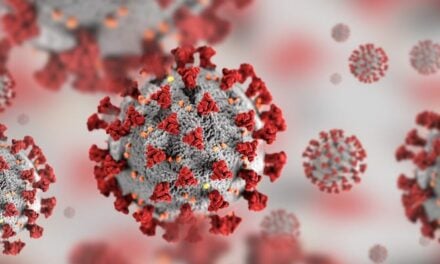NEW YORK (Reuters Health) – Changes in IgA and IgG antibody concentrations can bolster the early diagnosis of pertussis in adults, according to a new report.
"In an outbreak situation, we advise that relatively low single IgA and IgG antibody levels be used to confirm a clinical diagnosis of pertussis," Dr. Paul L. J. M. Mertens from Erasmus MC, University Medical Center Rotterdam, told Reuters Health.
Dr. Mertens and associates assessed the sensitivity and specificity of single IgA and IgG antibody levels for laboratory confirmation of clinical pertussis in adults during the first 3 weeks of symptoms. Their findings appear in the June 6th BMC Infectious Diseases.
Fifty-one of 99 subjects showed a significant increase or decrease in IgA or IgG between week 9, 13, and 60 of the pertussis epidemic investigated, the authors report. An additional 7 subjects had a single IgG value of at least 100 U/mL at week 9 or 13 of the epidemic.
IgA levels showed a more consistent increasing and decreasing pattern than did IgG levels, which tended to decrease more rapidly to relatively lower levels earlier in the clinical period, the results indicate.
Depending on cutoff values employed, IgA sensitivities ranged from 75% to 98% and IgG sensitivities ranged from 81% to 95%, the researchers note. Specificities ranged from 82% to 94% for IgA and from 89% to 99% for IgG.
During the first 2 weeks after the onset of clinical pertussis, cutoff levels of 24 U/mL for IgA and 27 U/mL for IgG showed sensitivities of 100% and 75%, respectively, the report indicates. Sensitivity was 100% for both parameters in week 3 and 97% from week 4 onwards.
Based on waxing and waning of IgA and IgG, the investigators say, "the paired samples should be collected within 4 days and 7 days, respectively, after they begin to increase in order to observe the fourfold rise towards their geometrical mean concentration."
Unvaccinated infants and those at risk of pertussis complications should be tested as early as possible after their symptoms begin so they can be treated without delay, Dr. Mertens advised.
"Persons in the neighborhood of unvaccinated siblings and of persons at risk for complications of pertussis should be tested as early as possible after their clinical start of pertussis, in order to treat these subjects to avoid transmission of Bordetella pertussis."
"We have planned to investigate the importance of IgA for early diagnosis of pertussis infection in children," Dr. Mertens added.
BMC Infectious Diseases 2007.




